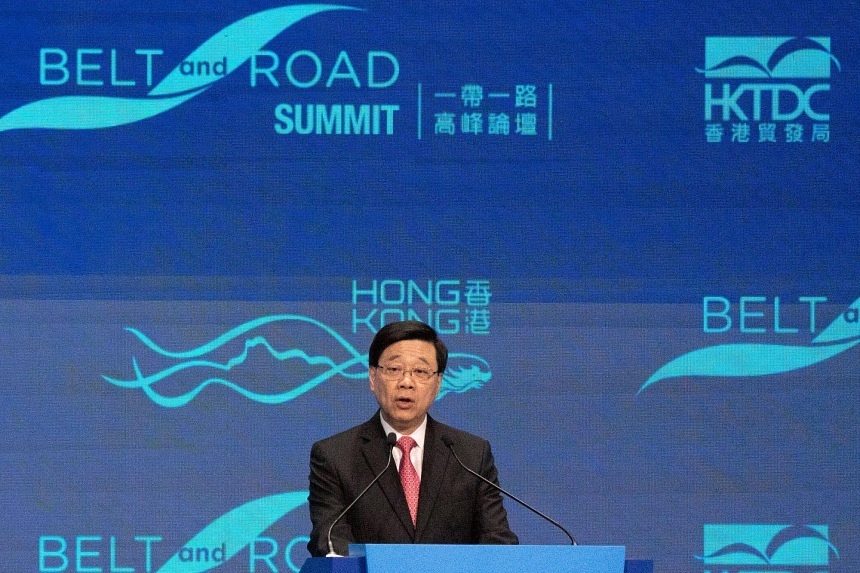HONG KONG – Hong Kong has intensified efforts to carve out international space for itself, especially among developing economies, as it increasingly comes under fire from the West for its governance.
Chief Executive John Lee on Sept 13 said his government was doing everything it could to strengthen ties with Asean, including improving trade, business and cultural links with the regional bloc.
On Sept 11, he talked up Hong Kong’s value to the world as a “super connector”, touting its pivotal role in inking deals with countries in China’s Belt and Road Initiative (BRI), as Beijing said it would expand the city’s scope of participation in the initiative.
Mr Lee’s speeches came after the United States on Sept 11 passed a Bill targeting the closure of Hong Kong’s trade offices in the country and on Sept 6 warned US businesses and individuals of the rising risks of operating in the city under its national security law.
The law was first imposed by Beijing on Hong Kong in June 2020, with Hong Kong later enacting its own legislation in March 2024.
Hundreds of activists have been arrested and dozens charged under the regulations, which criminalise treason, sedition and external interference, among other offences.
Mr Lee on Sept 14 warned that US businesses would “foot the bill” for their “very shameless and ugly political tactics” if they shut Hong Kong’s trade offices in America.
Separately, Britain on Sept 12 said in a parliamentary report on Hong Kong that the city had prioritised national security over the freedoms and rights of its residents.
The growing criticism from the West that Hong Kong has faced in recent years has contributed to a fresh urgency within Mr Lee’s administration to improve its ties with the rest of the world, an international relations expert said.
“In the past, Hong Kong used to target the developed world more in its external relations efforts, such as reaching out to the US and countries in Europe,” Dr Wilson Chan, director of policy research and co-founder of local think-tank Pagoda Institute, told The Straits Times.
“But now, to sidestep the growing geopolitical tensions with the West, Hong Kong has recognised that it needs to diversify its business and trade networks and has hence shifted its focus to Asean, the Middle East, Africa and other Belt and Road countries. So the government is now more eager to engage with these fast-developing economies.”
Dr Chan described Hong Kong’s approach as a form of “paradiplomacy” centred around global economic engagement. Paradiplomacy refers to the involvement of non-central governments and organisations in conducting international relations.
Under the one country, two systems framework, China’s central government conducts foreign affairs relating to Hong Kong. As a special administrative region, however, Hong Kong has the autonomy to handle certain external affairs on its own, including trade, finance, tourism, culture and sports.
The city is also authorised to participate in inter-governmental international organisations including the Asia-Pacific Economic Cooperation (Apec), the World Trade Organisation (WTO) and the World Health Organisation (WHO).
Hong Kong has over the past year engaged in a rapid string of global outreach efforts to bring together the city’s top leaders and those from its surrounding countries.
A Belt and Road Summit on Sept 11 and 12 was attended by Malaysia’s Trade Minister Tengku Zafrul Aziz, Cambodia’s Secretary of State for Commerce Lim Lork Piseth and Kazakhstan’s National Economy Vice-Minister Arman Kassenov, among other senior officials.
A Hong Kong-Asean Summit on Sept 13 heard speeches delivered by Datuk Seri Zafrul, Lao Deputy Finance Minister Phouthanouphet Saysombath and Cambodian Secretary of State for Tourism Prak Phannara.


